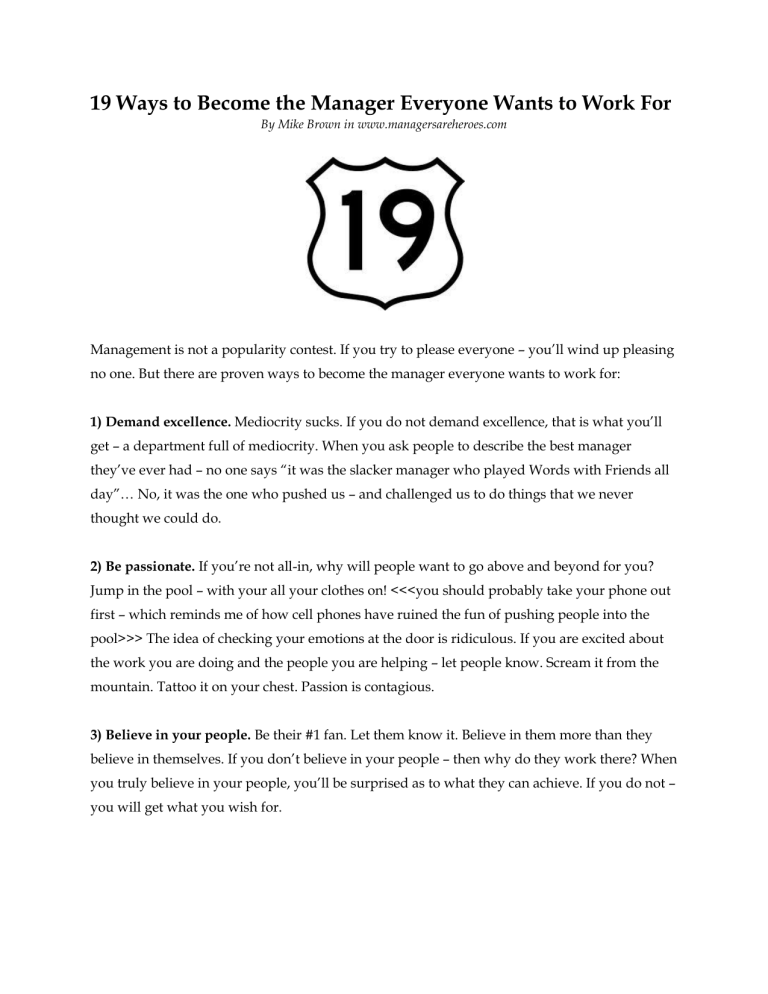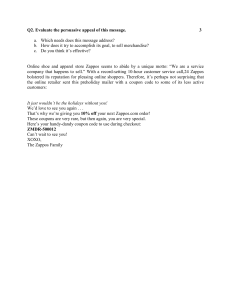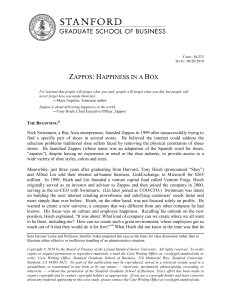
19 Ways to Become the Manager Everyone Wants to Work For By Mike Brown in www.managersareheroes.com Management is not a popularity contest. If you try to please everyone – you’ll wind up pleasing no one. But there are proven ways to become the manager everyone wants to work for: 1) Demand excellence. Mediocrity sucks. If you do not demand excellence, that is what you’ll get – a department full of mediocrity. When you ask people to describe the best manager they’ve ever had – no one says “it was the slacker manager who played Words with Friends all day”… No, it was the one who pushed us – and challenged us to do things that we never thought we could do. 2) Be passionate. If you’re not all-in, why will people want to go above and beyond for you? Jump in the pool – with your all your clothes on! <<<you should probably take your phone out first – which reminds me of how cell phones have ruined the fun of pushing people into the pool>>> The idea of checking your emotions at the door is ridiculous. If you are excited about the work you are doing and the people you are helping – let people know. Scream it from the mountain. Tattoo it on your chest. Passion is contagious. 3) Believe in your people. Be their #1 fan. Let them know it. Believe in them more than they believe in themselves. If you don’t believe in your people – then why do they work there? When you truly believe in your people, you’ll be surprised as to what they can achieve. If you do not – you will get what you wish for. 4) Listen. No…Really…Listen…How often are you planning what to say next – instead of listening to the person sitting in front of you? It’s OK if you do not get your point in. It’s OK if there is uncomfortable silence after the person is done talking because you’re not prepared to jump in. The important thing is to allow the person to express themselves – and truly be interested in what they are saying. 5) Have fun. We spend too much time in the office – not to enjoy ourselves. Be silly. Lighten things up. Everyone needs an opportunity to blow off some steam. Check out this 30-second video describing the fun culture at Zappos. What are you going to do this week – to be more like Zappos? 6) Tell ‘em about the 3 things. Communicate your top 3 priorities on a regular basis. Tell them…Tell them again…And then tell them one more time. It’s a morale killer to work hard on a task/project and then find out it was not really a high priority. If you want your people to be independent thinkers who consistently go above and beyond, make sure they know what your top priorities are. 7) Say thank you. We get so busy that sometimes we forget the simple things. Your people may not show their appreciation every time you say thank you. But I guarantee they will remember – when you don’t. 8) Eliminate poor performance. Remember this phrase: What we allow, we condone. No hardworking employee wants to work for a manager who tolerates poor performance. I’m not saying fire ‘em all – but we need to establish acceptable performance standards, communicate them and make sure we hold everyone accountable to them 9) Delegate important tasks. I know…I know…“Who has time to teach someone this task? It would just be easier to do it myself.” When we delegate important tasks – we honor our people. We are telling them how important they are – and how much we trust them. When people know they are trusted and are responsible for important tasks, they are more engaged and more likely to go above and beyond for you. 10) Give “attaboys” – OFTEN. Have you heard this one before – “My people get paid to work here. They will know very clearly when they are doing something wrong.” That…Won’t…Fly…Anymore… As a rule of thumb, try to give your people at least one piece of positive feedback per week. If you cannot think of one positive thing to say about your people – you may want to think about whether that person should be working with you. 11) Have their backs. You will not get the most from your employees – if they do not feel it’s safe. If their first concern is to document their actions so they do not get in trouble – you are in trouble. Your people need to know that you will go to the mat for them. This may mean taking the hit from above when someone on your team makes a mistake or pushing back on a task when you know that your team is already overloaded. Words are cheap when it comes to this – you are going to have to prove this one with actions. 12) Talk about your interests – outside of work. 2 reasons for this one. First – it makes you more approachable. You are not just the ogre who assigns tasks. It gives your people an additional opportunity to connect with you. The second is that it gives others permission – to talk about their interests. I’m not saying you should be friends with the people who work for you – but you should be friendly. You should know what is important to them. 13) Embrace failure. I would even say it stronger – celebrate it. Tell them a story when you failed horribly. This goes back to making it safe. If your people are scared as to how you are going to react when things go badly – you will not get your people to take chances. You and your people will not grow. Using a sports analogy, for every 3 times the best baseball players get up to bat – they get out at least 2 of them. We do not learn from success; We learn from failure – and how we respond to it. 14) Close your laptop. Show people that you care. When someone comes into your office – make sure they know that you value them. Put away the phone; close the laptop; Clear space on your desk for them. You will go nowhere without your people; make sure your actions show that you believe this. 15) Value learning. Show your people that learning is a priority. Lead by example. Learn new skills on your own. In today’s world – you are either moving ahead – or falling behind. There is no in-between. Let your people know that you not only want them to – but you expect them to – continue their learning. It could be industry-specific, product-specific, technology-related. It does not matter – just as long as you let your people know that you are supporting their growth. 16) Never, ever gossip. It breaks trust, contributes to unnecessary drama and eventually will cause you to lose credibility. If someone wants to gossip with you, change the subject or even better, ask if we should address it with the other person. If the gossiper doesn’t get the validation they are looking for – they will eventually stop bringing it to you. 17) Help them connect the dots. People want to know that the work they do is important. Do not assume that they will connect those dots. Explain how this project is tied into the company’s objective of getting into a new line of business or how that task will help the CFO with her goal of consolidating vendors. Your people will be happier and take stronger accountability for their work. 18) No command-and-control. Back in the day the boss could get away with “My way or the highway.” The rules have changed. Things change too quickly and there is too much for one person to know. Managers today must provide the vision and the tools – and then get out of the way. Micro-managing crushes morale. Manage by end-goals and you will you have a more appreciative team with a higher quality work. 19) Walk the walk. No better way to lose credibility and trust then ‘Do what I say – not what I do.” Model the behavior you want. Like it or not – your people are always watching you. This is especially true when things go bad. Will you show resilience when you get punched in the gut? How will you respond when a peer attacks you in public? Think about how you would want your team to react in similar situations.






